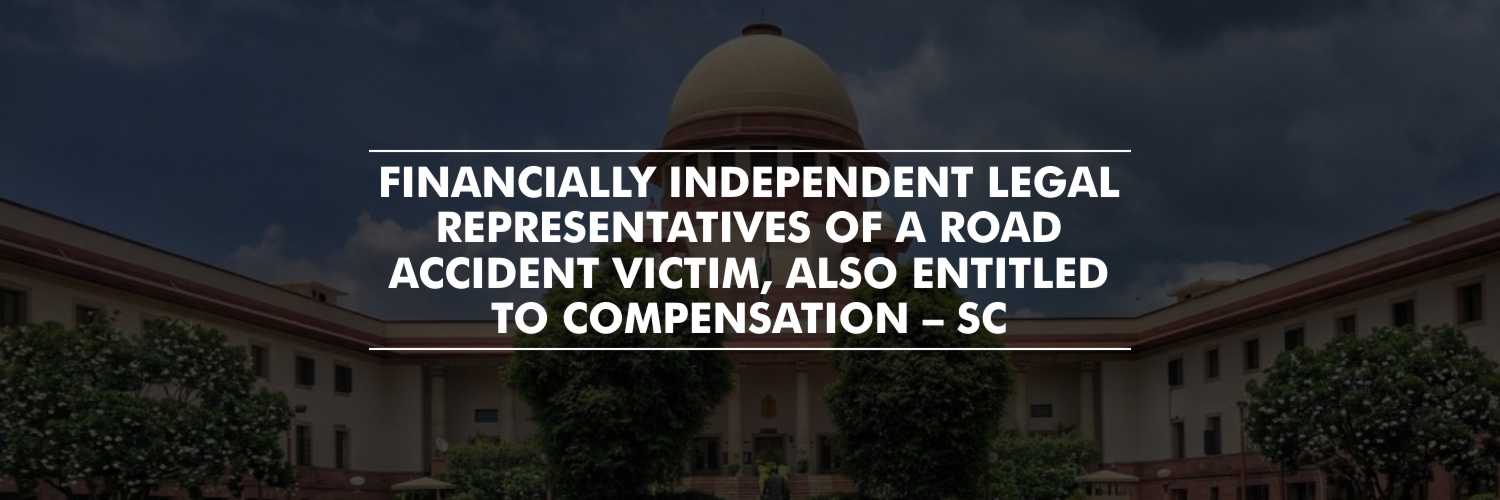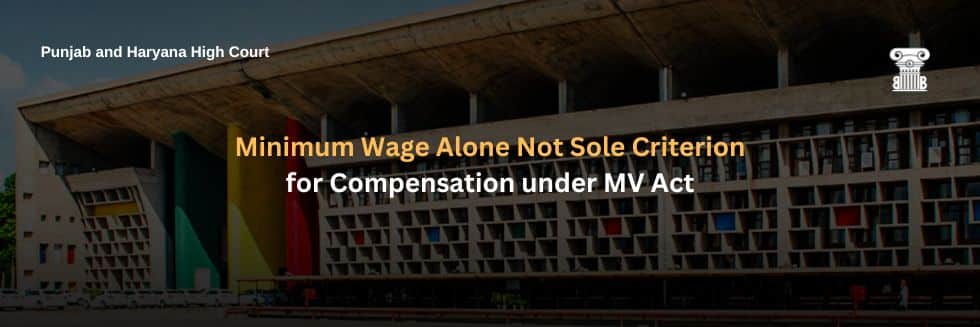Setting aside the verdict of Punjab and Haryana HC, the Supreme Court held that the legal representatives of the victim who was killed in a road accident cannot be denied compensation merely on the ground that they are financially independent on the deceased.
The bench headed by Justices AM Khanwilkar and Dinesh Maheshwari stated that the married son who is earning and not dependant on the deceased would still be considered as the ‘legal representative’ of the victim and will be entitled to the compensation. The bench further granted a compensation of Rs 32 Lakh to the two sons of the woman who was killed in a road accident in 2014.
“Thus, the legal representatives of the deceased have a right to apply for compensation. Even the major, married and earning sons of the deceased being legal representatives have a right to apply for compensation and the Tribunal has to consider the application irrespective of the fact that they were independent on the deceased,” stated the two-judge bench.
Observing that the Motor Accident Claims Tribunal has calculated the amount of compensation based on the net salary, the court analyzed that the compensation has to be determined based on the gross salary and not on the net salary of the victim.
“The liability to pay compensation under the Motor Vehicles Act doesn’t cease because of the absence of dependency of the legal representative. Concededly, any deduction from the gross salary other than the tax amount can’t be reckoned. In that, the actual salary minus tax amount ought to have been taken into consideration by the Tribunal for determining the compensation amount,” the court asserted.






